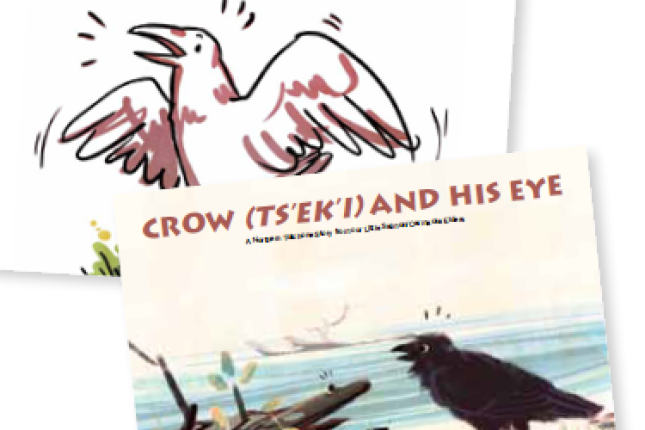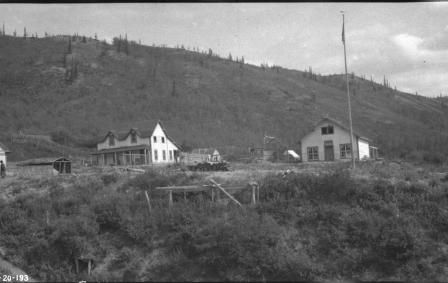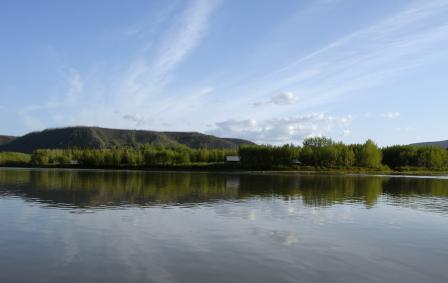Revitalizing Northern Tutchone teachings for future generations

Doòli dän k’I hats’adän
Stories are powerful. In the Northern Tutchone (Hude Hudӓn) way, stories are teachings, traditional laws, and represent the Northern Tutchone way of life. These traditional laws and customs are referred to as ‘Dooli.’
The traditional Dooli laws teach Little Salmon Carmacks First Nation (LSCFN) citizens, especially children, what it means to be a Northern Tutchone person.
Since 2000, the Northern Tutchone Dooli Project, Doòli Dӓn K’I, has been working to develop materials and revitalize traditional laws and principles.
“Originally, our Dooli were the unwritten laws that covered every aspect of life…and every thought and interaction with the plants, animals and the world around us."
"Our ancestors were given these gifts of knowledge and teaching by their parents and Elders so that each and every one of us could have the opportunity to live a good life. Our Dooli helped us take care of each other, the land and water, the fish and wildlife and the rest of the world around us,” Little Salmon Carmacks First Nation citizen Viola Mullett says.
Hats’adän means teachings or learning.
“There was a time long before the Hude Hudӓn, when the world was young and animals were alike and talked to each other. Back then, even they were new to the world and had many lessons to learn about survival and respect. Later they taught these lessons to the ancestors (Hude Hudӓn) and this is how Dooli began,” reads Nena Dooli, a Dooli booklet about fish and wildlife and traditional Northern Tutchone laws.
“Today’s Northern Tutchone are living proof the Dooli of the ancestors worked very well,” it says.
Reconnecting with Northern Tutchone culture
At its core, the Dooli Project - Doòli Dӓn K’I - connects Little Salmon First Nation citizens to their identity. The First Nation, with its territory located in South Central Yukon, signed their Final and Self-Government Agreements in 1997 with the federal and territorial governments.
Chantal Rondeau, is a mother and a citizen of the Little Salmon Carmacks First Nation.
I think the Dooli program has been essential for revitalizing our culture.
"I think for a long time a lot of people didn’t talk about our stories. You see it happening now, more young women are sewing and trying to learn things that their ancestors knew. For me, having these books in my house and being able to read them to my daughter is something that I lacked when I grew up. I didn’t have any of that, and I want to make sure she knows her culture as much as she can,” Rondeau says.
So far, over 20 different traditional, illustrated Dooli story booklets are in print.
These booklets are brought into the schools in Northern Tutchone communities to help students learn and pass on Dooli knowledge. There are animated clips available online and learning activities for pre-school aged children.

Over the past 17 years, the three Northern Tutchone nations of Little Salmon Carmacks, Selkirk and Na-Cho Nyack Dun have developed the Doòli Dan K’i Northern Tutchone Hudę Hudän K’I (K’ete) Hats’dän, or Traditional Code of Ethics and Conduct. They have also developed twenty-three Hats’adan (learning) storybooks for daycare, school age children and other educational tools. Based on the books, Northern Tutchone teachers have developed lesson plans to be taught in schools.
Our culture is in our stories, that’s how it gets passed down.
"It was a way for our ancestors to teach us lessons, and to be good Northern Tutchone people and to live good lives… the Dooli program is essential, so that we don’t lose more Elders and we don’t lose more stories,” Rondeau says.
She reads the storybooks to her young daughter, Nashawa (‘crocus’ in Northern Tutchone). “They’re stories about things that happened in the past and they all have Dooli lessons in them. It could be a story about an otter and it teaches you lessons on how to act when you see an otter,” Rondeau explains.
Dooli on the land
The goal is to bring traditional Northern Tutchone stories, governance, principles, laws and values forward to future generations.
That includes getting out on the land – Northern Tutchone traditional territory.
At the annual Auntie’s Retreats, young women learn from Elders and young Elders. The group prepares hides for tanning and learns language, how to make birch bark carriers, and about Dooli laws and relationships with the land.
“There was hanging out by a fire and talking about stories….it brings people on the land and it’s showing them culture, right in front of them and it’s teaching the young people,” Rondeau says.
This is done by sharing knowledge among the participants.
Uncles’ Retreats are also held annually, attended by the Northern Tutchone Elders and young men to share, learn and re-learn the traditional Dooli laws and principles of what is needed to be good Northern Tutchone citizens,” Mullett says.
The Doòli Project includes a number of ways to learn about Dooli values: the annual Uncle’s and Auntie’s Retreats, meetings with Elders and youth, meetings with the Northern Tutchone Elders and citizens to recover traditional naming practices, and a trip to Ottawa to identify historical artifacts and reconnect with culture.
Foundations for governance
For Rondeau, the ability to bring Little Salmon Dooli values and principles into self-government contributes to self-determination.
It is tied to the agreements. I think that when developing a government you have to have these guiding principles in that government and with the Dooli and the lesson plans, it guides the way that you govern yourself and become our own entity.


